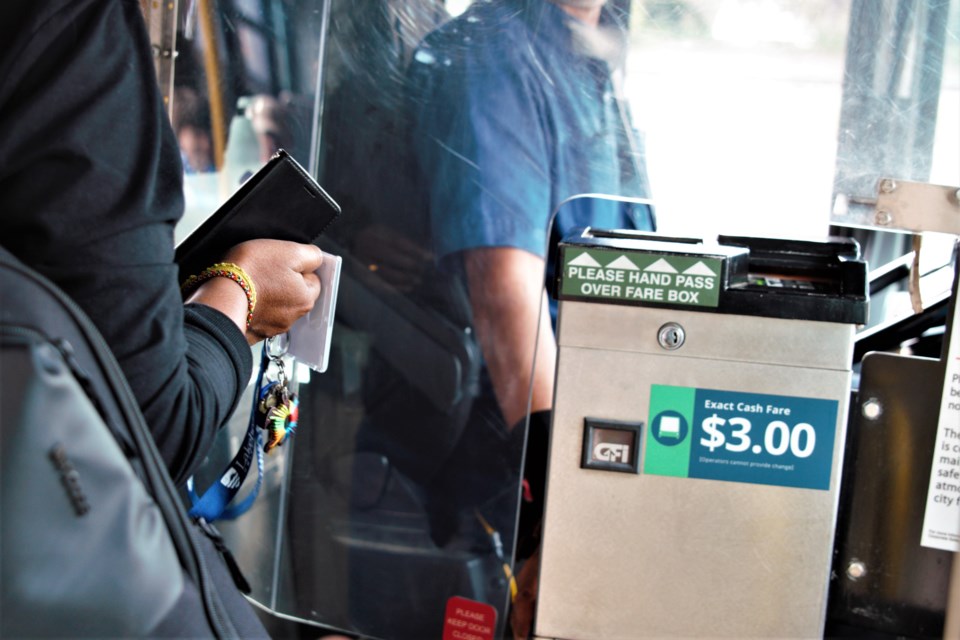THUNDER BAY — Riders on Thunder Bay Transit will soon be able to board with the tap of a cell phone or smart card.
A new, multi-million dollar payment system the city agency is preparing to install across its fleet will see Thunder Bay join many other municipalities that have made the switch to digital systems.
Transit will also continue to accept cash payment after the new system launches, expected in late spring of 2024.
The system is also capable of accepting contactless debit or credit payment, though the city won’t immediately offer that option.
Thunder Bay Transit manager Brad Loroff said the changes bring several benefits, like convenience for users, new possibilities for discount incentives, and more efficient boarding.
“If you take advantage of the account-based system, you’ll be able to use an app on your phone,” he said. “It’s really going to improve the functionality for people and make transit easier to use.”
The system will allow riders to load funds onto an account online and in person at select stores and municipal offices.
They will then tap a smart card, similar to a debit or credit card, or their cell phone using a mobile app, to board.
Loroff said the system will enable new flexible payment options and ridership incentives like “fare capping.”
“Rather than having to [pay] for a monthly pass of say $80… this system will allow us to move into a space where you pay as you go, and once you reach the value of that monthly pass amount, then your trips are free,” he said.
Fred Caputo, president of ATU Local 966, which represents bus operators and mechanics, called the change “long overdue,” saying he’d been pleased with the system after sitting in on a manufacturer’s demo.
“The new fare box system will be more user friendly not only for operators but passengers as well,” he said. “It will ultimately offer more options to the riding public as a means of paying their fare.”
Loroff said while many larger Ontario municipalities switched to similar systems years ago, Thunder Bay is far from the last to make the transition.
“I think we’re right in that sweet spot where transit agencies our size are moving toward smart-card systems,” he said.
On Monday, city council will consider a staff recommendation to award a $2.3 million contract for the new system to Uxbridge-based Payment in Motion, Inc.
After an HST rebate for municipalities, net cost to the city is estimated at just over $2 million.
The city will shoulder very little of that, with funding received through the federal-provincial Investing in Canada Infrastructure Program covering over $1.9 million.
Of three proposals received by the city for the work, Payment in Motion’s scored highest in evaluation. Loroff called the company an experienced leader in the Canadian transit industry.
The city’s current farebox equipment dates back to 2008.
While modernizing its system for the digital age and ditching tickets that drivers must manually punch, Loroff said transit is committed to preserving options like cash payment.
“Everyone may not be able to take advantage of the account-based system, and that’s fine,” he said. “We’ll still have a number of other fare payment options available to them.”
“We’re not moving away from cash fare collection at all — that will always be a part of the system. But over time we’re hopeful the trend will be to reduce the use of cash.”
Alongside its reloadable smart cards, Thunder Bay Transit will also sell limited-use pre-loaded cards, similar to its current 10-ride passes.
